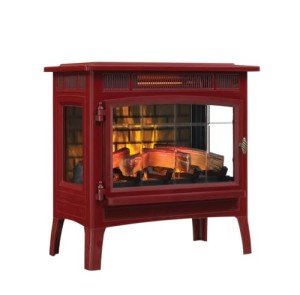A The Complete Guide To Fireplace Store From Beginning To End
The Ultimate Guide to Fireplace Stores: Everything You Need to Know
Fireplaces have long been a sign of warmth, comfort, and design within a home. They produce a centerpiece in living spaces and use a comfortable atmosphere for families and buddies to collect around. As an outcome, the fireplace market has seen a rise in demand for various styles, models, and devices. This short article explores what to think about when checking out a fireplace store, kinds of fireplaces readily available, and answers to frequently asked questions, offering a thorough overview for homeowners seeking to make a purchase.
The Importance of Choosing the Right Fireplace Store
Buying a fireplace is a substantial financial investment, making it essential for property owners to select a dependable and well-informed fireplace store. Here are some reasons that choosing the right store matters:
Wide Variety of Options: A reliable fireplace store provides a diverse variety of fireplaces, including wood-burning, gas, and electric options. This range makes sure that house owners can discover the ideal fit for their taste and requirements.
Professional Guidance: Knowledgeable personnel can provide valuable insights into the advantages and downsides of each type of fireplace, helping consumers make informed choices.
Quality control: Established stores are most likely to carry top quality products from respectable brands, making sure client satisfaction and safety.
Setup Services: Many fireplace stores use installation services and after-sales support, guaranteeing that the unit is not just purchased but is likewise properly installed and preserved.
Customization Options: Some stores offer customized fireplaces, accommodating distinct choices in style, size, and performance.
Types of Fireplaces Available
When exploring a fireplace store, consumers will come across different kinds of fireplaces. Comprehending these alternatives can assist in choosing the best one for a home.
1. Wood-Burning Fireplaces
- Description: Traditional type that uses wood logs as fuel.
- Benefits:
- Offers a classic ambiance and the crackling sound of burning wood.
- Can be more cost-efficient in regions abundant in wood supply.
2. Gas Fireplaces
- Description: Uses gas or propane and ignites with the flip of a switch.
- Advantages:
- Easier to run and maintain than wood-burning designs.
- Provides a constant heat output and can be more energy-efficient.
3. Electric Fireplaces
- Description: Uses electricity to generate heat and produce a flame impact.
- Advantages:
- Requires no venting, making setup easier.
- Deals various settings for flame and heat strength.
4. Gel Fuel Fireplaces
- Description: Uses gel fuel canisters to develop a real flame without venting.
- Benefits:
- Portable and simple to install.
- No requirement for a chimney or gas line.
5. Ethanol Fireplaces
- Description: Burns bioethanol fuel, offering a genuine flame.
- Benefits:
- Environmentally friendly with no smoke or ash.
- Can be used inside or outdoors.
Fireplace Type
Fuel Source
Vent Requirement
Installation Cost
Maintenance
Wood-Burning
Wood
Yes
Moderate
High
Gas
Natural Gas/Propane
Yes (or optional)
Low
Low
Electric
Electrical power
No
Low
Really Low
Gel Fuel
Gel Fuel
No
Extremely Low
Extremely Low
Ethanol
Bioethanol
No
Low
Low
Aspects to Consider When Shopping
When going to a fireplace store, numerous aspects must be taken into consideration before making a purchase:
Space: Measure the area where the fireplace will be set up to ensure the chosen model fits easily.
Heating Needs: Assess the square video footage of the room to figure out the necessary heat output.
Design: Choose a fireplace that complements existing décor, whether it's rustic, modern, or traditional.
Budget: Set a spending plan that consists of both the unit's purchase and installation costs.
Regional Regulations: Check community structure codes regarding fireplace setup to guarantee compliance.
FAQs About Fireplace Stores
1. What is the best kind of fireplace for a home?
The “best” type depends upon the property owner's requirements and preferences. Gas fireplaces are popular for their benefit, while wood-burning fireplaces offer a timeless experience.
2. How much does a fireplace expense?
Expenses can differ substantially based on the type, style, and setup intricacy. Fundamental models may start at a couple of hundred dollars, while custom units can surpass several thousand.
3. Are electric fireplaces safe?
Yes, electric fireplaces are typically considered safe. They do not produce genuine flames or emissions, minimizing the risks related to traditional fireplaces.
4. How do I maintain my fireplace?
Upkeep differs by type. Wood-burning designs require cleansing of the chimney and flue, while gas fireplaces might need yearly inspections. Electric fireplaces usually need minimal maintenance.
5. Can I set up a fireplace myself?
While some electric and gel fireplaces can be installed as DIY tasks, it's normally best to employ specialists for gas and wood-burning fireplaces to make sure safety and compliance with structure codes.
Selecting the best fireplace store is just as crucial as choosing on the kind of fireplace itself. Property owners need to weigh their choices carefully, thinking about aspects such as installation requirements, heating needs, and general aesthetics. With the best details and guidance from well-informed staff, clients can with confidence pick a fireplace that perfectly complements their home while supplying warmth and comfort for several years to come.
